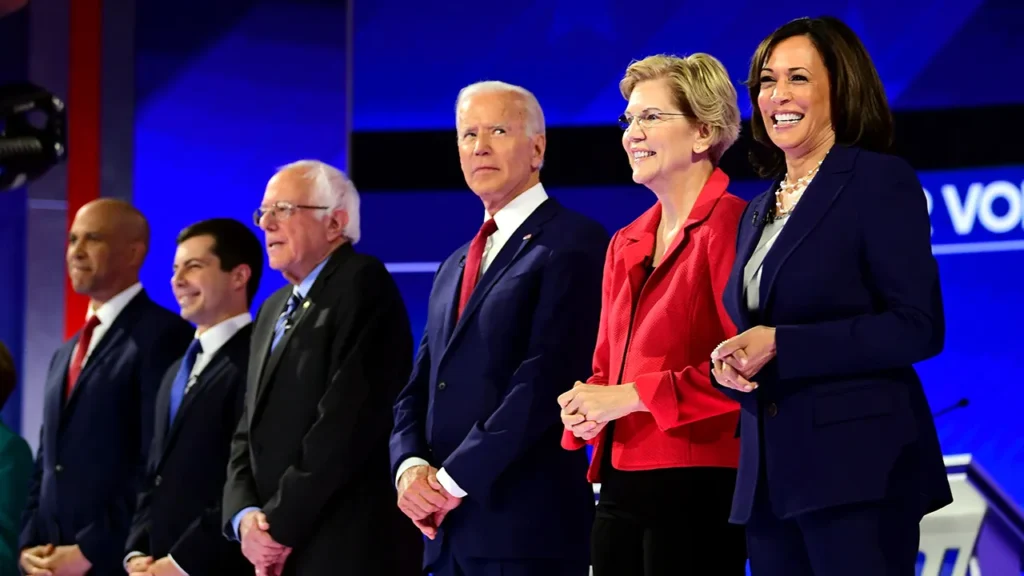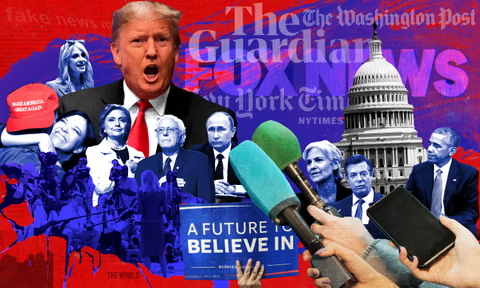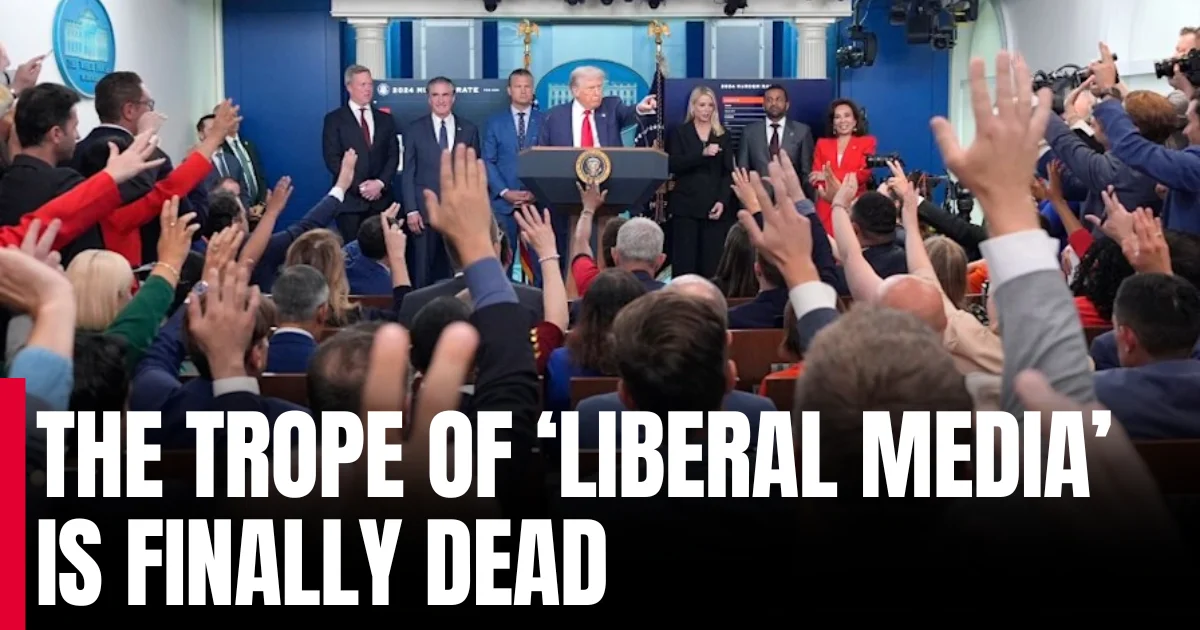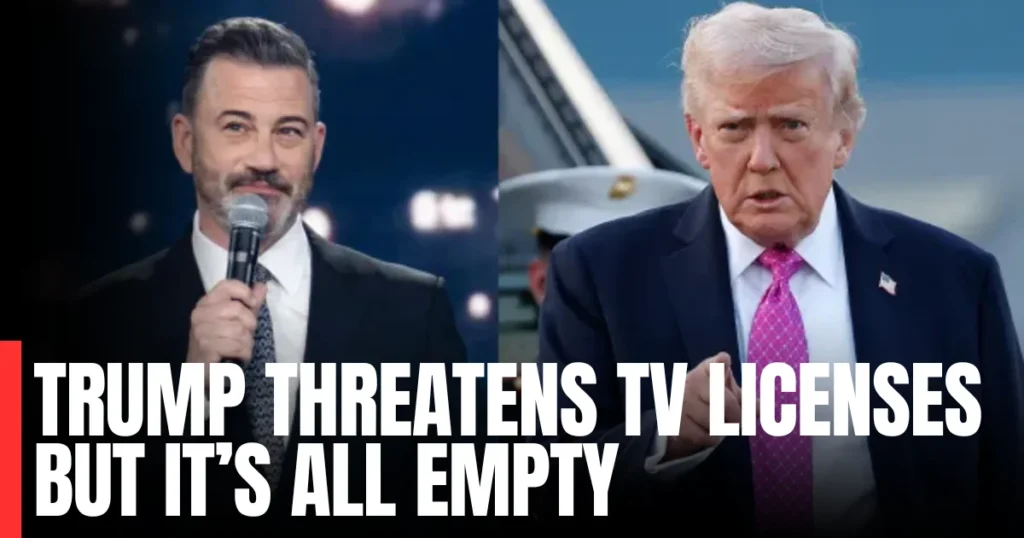The “liberal media” narrative is over. Trump’s influence, corporate takeovers, and media economics have transformed journalism forever. Read more.
Table of Contents
The Trope of ‘Liberal Media’ Is Finally Dead
Introduction
For decades, the phrase “liberal media” was wielded as a political weapon — a rallying cry for conservatives who claimed mainstream outlets were biased against them. But in 2025, that trope no longer holds weight. The media landscape has undergone seismic shifts, driven by political influence, corporate consolidation, and the collapse of old business models.
Today, the very institutions once accused of harboring “liberal bias” are either under conservative control, frightened into silence, or struggling to survive in a digital-first economy.
The Death of the “Liberal Media” Myth

The perception of media as inherently liberal was always exaggerated. Rooted in geography — with most media giants based in New York and Washington, D.C. — the idea gained traction with Fox News amplifying it in the 1990s.
But under President Donald Trump’s second term, the fight has shifted. Instead of simply calling out “fake news,” Trump and his allies are actively reshaping the industry. From pushing legal threats against The New York Times and NPR to backing billionaire allies in media takeovers, Trump has gone far beyond rhetoric.
When corporations like CBS and ABC bend under political pressure — even suspending stars like Jimmy Kimmel after FCC threats — the myth of “liberal media” collapses. Networks once accused of left-leaning bias now pay millions in settlements and make programming concessions to avoid conflict.
Media Under Corporate and Political Control
Media critic Jeff Jarvis points out that today’s consolidation isn’t just financial, it’s political. Tech moguls like Larry Ellison and investors aligned with Trump are buying into companies like CBS, Paramount, and even TikTok. These moves blur the line between business strategy and political agenda.
The result? A shrinking space for dissenting voices. Traditional outlets are compromised, while alternative platforms like TikTok, YouTube, and podcasts face mounting pressure from regulators and corporate owners.
The Economics of Collapse
The decline of mass media is not just political — it’s economic. The traditional advertising-driven model collapsed with the rise of the internet, forcing many outlets behind paywalls. But subscriptions are limited, putting trustworthy journalism out of reach for many Americans.
This hollowing out of media power left it vulnerable to political influence. As Jarvis notes, mass media sacrificed its influence when it lost its monopoly over attention.
What Comes Next for Journalism?

While mainstream outlets face unprecedented pressure, dissent is finding new life in independent voices — podcasts, blogs, and smaller digital platforms. These spaces may become the last refuge for diverse perspectives, though they, too, are vulnerable to economic and political challenges.
One thing is clear: the era of accusing media of being uniformly “liberal” is over. Instead, the U.S. is witnessing a media ecosystem where power and influence are consolidated by those in government and their billionaire allies.
FAQs
Q1: What does it mean that the “liberal media trope” is dead?
It means the long-standing claim that mainstream media is dominated by liberal bias no longer reflects reality. Today, major outlets are increasingly controlled or influenced by conservative power structures.
Q2: Why is Trump targeting media companies directly?
Trump views certain outlets as political threats. By using legal, regulatory, and economic pressure, he aims to shape or silence critical coverage.
Q3: How does corporate takeover affect journalism?
When political allies acquire or influence media companies, editorial independence is compromised. This consolidation prioritizes political agendas over journalistic integrity.
Q4: Can independent voices still thrive?
Yes. Podcasts, blogs, and digital creators provide alternative perspectives. However, they face challenges from platform restrictions, funding issues, and potential political pressure.
Q5: What role does economics play in the decline of mass media?
The collapse of ad revenue and the rise of paywalls have weakened traditional outlets, making them vulnerable to both financial instability and political manipulation.
Conclusion
The label of “liberal media” was always more of a political talking point than a reality. But in 2025, the trope is officially obsolete. With Trump and his allies consolidating control, and economic pressures reshaping the industry, the media is no longer seen as a monolithic liberal force.
Instead, the U.S. faces a deeper challenge: preserving spaces for independent, credible journalism in a landscape increasingly defined by political power and corporate consolidation.

